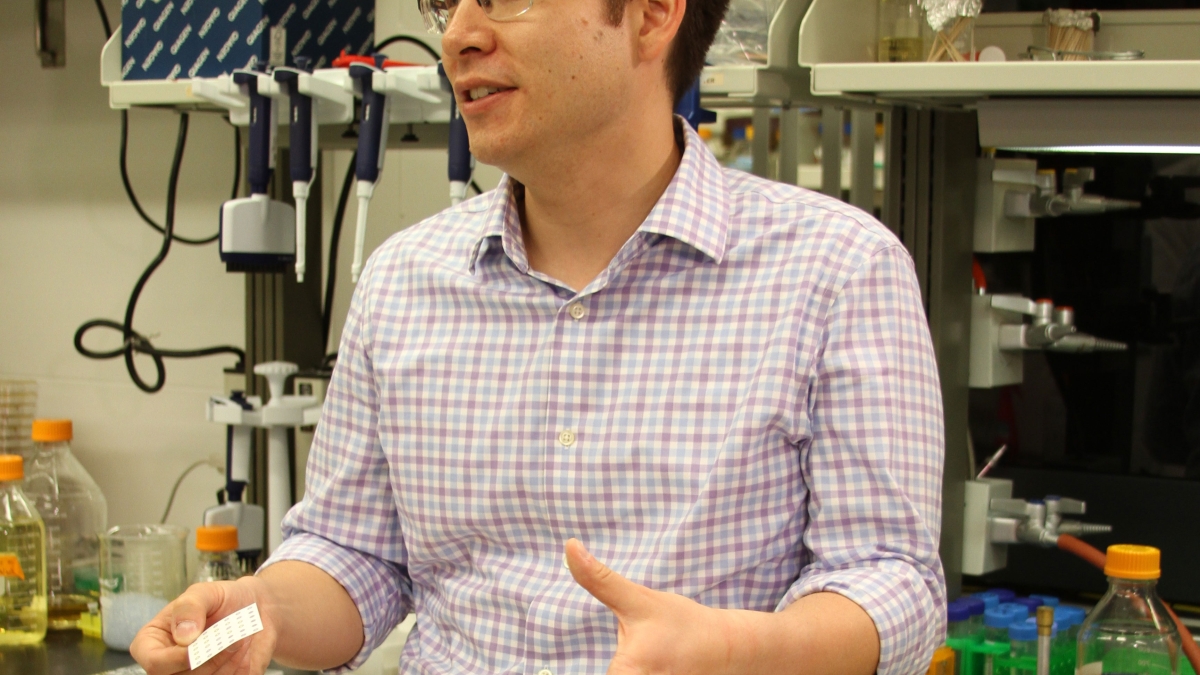Popular Science lists Zika test among its Best of What’s New in 2016

ASU assistant professor Alexander Green speaks in the lab while holding one of the new paper-based diagnostic tests for the Zika virus.
Popular Science named a low-cost Zika virus test developed by researchers from the Wyss Institute for Biologically Inspired Engineering at Harvard University in Boston and Arizona State University a 2016 Best of What’s New award winner in the health category.
Alexander Green, an ASU professor at the Biodesign Center for Molecular design and Biomimetics and the School of Molecular Sciences, helped develop the test, which costs $1 per use.
“We’re really honored to have our work recognized by Popular Science,” Green said. “It’s been exciting to see the technology go from concept to a functioning diagnostic this year. Our team at ASU is working hard to perfect these tests and expand their capabilities so that they can help people in need around the world.”
The test uses a small strip of paper imprinted with a testing array, which holds potential for diagnosing a broad range of infectious diseases, including Zika. Existing tools for diagnosing the virus are often cumbersome and prohibitively expensive for widespread use in the field. Most recently, Green and the research team have successfully tested human samples with collaborators in Ecuador.
Each year, the editors of Popular Science review thousands of products in search of the top 100 tech innovations of the year — breakthrough products and technologies that represent a significant leap in their categories. The winners, the Best of What’s New, are included in the much-anticipated November/December issue of Popular Science, the most widely read issue of the year.
“The Best of What’s New awards honor the innovations that share the future,” said Kevin Gray, executive editor of Popular Science. From life-saving technology to incredible space engineering to gadgets that are breathtakingly cool, this is the best of what’s new.
Best of What’s New awards are presented to 100 new products and technologies in 11 categories: automotive, aviation, computing, engineering, gadgets, entertainment, security, software, home, health and recreation.
More Science and technology

Turning up the light: Plants, semiconductors and fuel production
What can plants and semiconductors teach us about fuel production?ASU's Gary Moore hopes to find out.With the aim of learning how…

ASU technical innovation enables more reliable and less expensive electricity
Growing demand for electricity is pushing the energy sector to innovate faster and deploy more resources to keep the lights on…

What do a spacecraft, a skeleton and an asteroid have in common? This ASU professor
NASA’s Lucy spacecraft will probe an asteroid as it flys by it on Sunday — one with a connection to the mission name.The asteroid…

